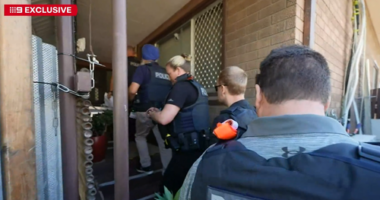Share this @internewscast.com
French legislators decided on Monday to remove Prime Minister François Bayrou from his position, throwing the nation into a fresh political upheaval. This comes at a critical time marked by mounting economic challenges and rising global tensions, leaving France without a functional government.
A total of 364 deputies voted against Bayrou, while 194 supported him after he initiated the vote. He sought approval for a contentious $78 billion (€44 billion) austerity plan, which included the elimination of two public holidays and a freeze on government spending.
The 364 votes against Bayrou were well above the 280-vote threshold needed to topple the government.

As a result, Bayrou will be compelled to resign after serving only nine months, mirroring the fate of his predecessor, Michel Barnier, who similarly failed a confidence vote last December.
Bayrou is expected to submit his resignation to French President Emmanuel Macron on Tuesday morning, according to CNN affiliate BFMTV.
The prime minister’s departure leaves Macron with few palatable options.
This political instability has unsettled investors. The interest rates on French government bonds have increased, surpassing those of Spanish, Portuguese, and Greek bonds, which were central to the eurozone debt crisis in the past.
A possible downgrade of France’s sovereign debt rating review Friday would deliver another blow to its economic standing in Europe.
“You have the power to topple the government, but you do not possess the ability to change reality,” Bayrou remarked to lawmakers before the vote took place on Monday.
“Reality will remain relentless: expenses will continue to rise, and the burden of debt, already unbearable, will grow heavier and more costly.”
“We broke the social contract” with younger generations, Bayrou added.
The political instability can be traced back to Macron’s own dramatic decision last year to call a snap election.
In the wake of the significant gains by the far-right National Rally during the European Parliament elections in May 2024, the French president compelled a parliamentary vote, leading to his party losing seats to both the far right and far left, resulting in a fragmented parliament.
Even before the vote, the prospect of Bayrou’s downfall sparked calls for the president to step aside, though he has vowed to serve out his term.
Far-right doyenne Marine Le Pen has demanded he dissolve parliament, but fresh elections would almost certainly strengthen her party and fracture the French parliament further.
Another path would be for Macron to appoint a caretaker government while looking for a new prime minister, with Armed Forces Minister Sébastien Lecornu and Justice Minister Gérald Darmanin among the frontrunners for what is likely to be a poisoned chalice.
The trouble for Macron is that, after three failed centrist prime ministers, the opposition parties are in no mood to give another one a chance.
Both the far right and far left have signaled they would immediately call for a vote of no confidence if another such premier were appointed.
Naming a prime minister from another political camp is, in theory, an option, but a choice on the right would be blocked by the left, and vice versa.
For the next prime minister, the budget fight will be just as fraught.
The Socialists want to tax the rich and roll back Macron’s tax cuts for businesses â all red lines to Les Republicains, the long-standing conservative party and a key player in the coalition cobbled together after the snap election.
The upshot is that France’s fiscal mess is unlikely to be fixed anytime soon.
In the event of another snap parliamentary election, a recent Elabe poll suggests the National Rally would emerge on top, with the left coming in second and Macron’s centrist bloc a distant third.
Many now assume the far right will eventually take power â if not now, then after the 2027 presidential election â though few believe such an outcome would solve the country’s problems.
Public trust in the political class has collapsed and anger is set to spill onto the streets: the far left has called nationwide protests for Wednesday, under the banner “Bloquons tout” (“Let’s block everything”), with trade unions planning another mobilization on September 18.
All of this comes at the worst possible geopolitical moment, with wars raging in Ukraine and the Middle East.
Instability in Paris is a gift to both Russian President Vladimir Putin and his US counterpart Donald Trump, who share a common delight in mocking Europe’s weaknesses.












